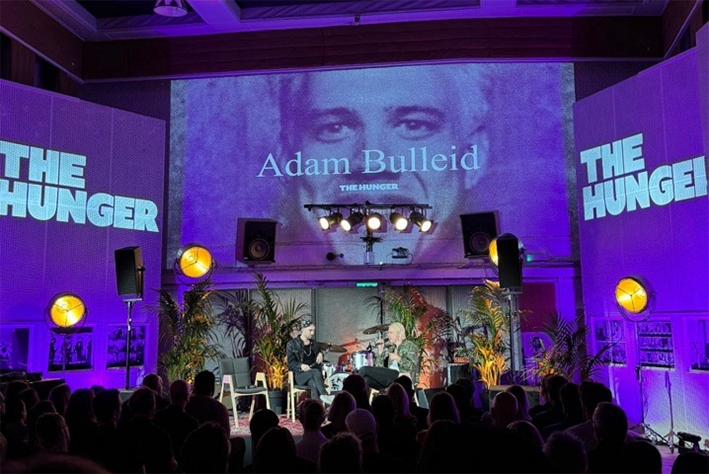|
Maria Iu
Brands should ‘listen and learn’ when it comes to working with talent


Brands shouldn’t have any preconceived ideas when it comes to working with talent, the audience was told at an event to mark the rebrand of Rankin Creative.
At the Future (and Fury) of Creativity event on Thursday, CEO Richard Pinder announced that the creative agency, along with Hunger, the magazine that it operates, as well as Rankin’s entertainment division and post-production unit, will now fall under the brand name The Hunger.
The move seeks to simplify the company’s offering. Pinter told The Media Leader: “You go to a client and say hey, we’re Rankin Creative and we have a magazine called Hunger and we have a post-production team called True Black and we have Rankin Entertainment — and it’s like: what?
“Now we go in and say we’re The Hunger and we have a magazine, which is the key part of this. The magazine is our ability to have a radar on culture as it’s coming down the pipe and we feed that into brand-building — that’s why we’ve done it. The logic of the name explains the logic of the decision.”
Pinder dismissed the suggestion that the company is for sale, saying: “Right now, the plan is to build a great business.”
At the event, which took place at Abbey Road Studios, Adam Bulleid, talent agent at William Morris Endeavour, was interviewed by Hunger creative director Jordan Rossi on working with brands.
Bulleid said: “Don’t come with fully formed ideas. Come to the table to listen and learn. Come with an open mind.”
He also resisted marketers’ tendency to request a specific number of posts in brand and talent partnerships. “Let’s create something so brilliant that they want to post,” he countered. “Deliver the best creative and I promise you people will shout about it.”
This comes down to trusting the talent, who knows their audience, against the backdrop of a much more fragmented landscape. As Bulleid explained: “There used to be editorial platforms you lived or died by — you had to get on MTV, you had to be referenced by NME. Now, you’re so accessible, your brand is so accessible — if you say these things [brand messages], you have to live by them.
“It’s so transparent when someone hasn’t got an interest in the thing they’re doing.”
This was echoed by two-Michelin-star chef Tom Sellers, who said it’s not worth working with a brand purely based on “commerciality”. He added: “You have to keep your integrity around your work and your craft. I only work with brands that share a similar level of integrity and moral compass as I do.”
Elsewhere, actress Kathy Burke pointed to the ease of “creating your own work” now compared with 30 years ago in order to build your brand, citing creators such as Michaela Coel and Daisy May Cooper. However, recalling a project she walked out on as a young woman after finding out her male counterparts were paid more, she reminded the audience: “Ladies, ask for more, know your worth.”
Sharing the daunting experience of pitching to a fashion buyer at 16, menswear designer Ozwald Boateng was less comfortable with the idea of “brand”. He said: “My ‘why’ is the thing that drives me. As opposed to using my name and building a brand.”
